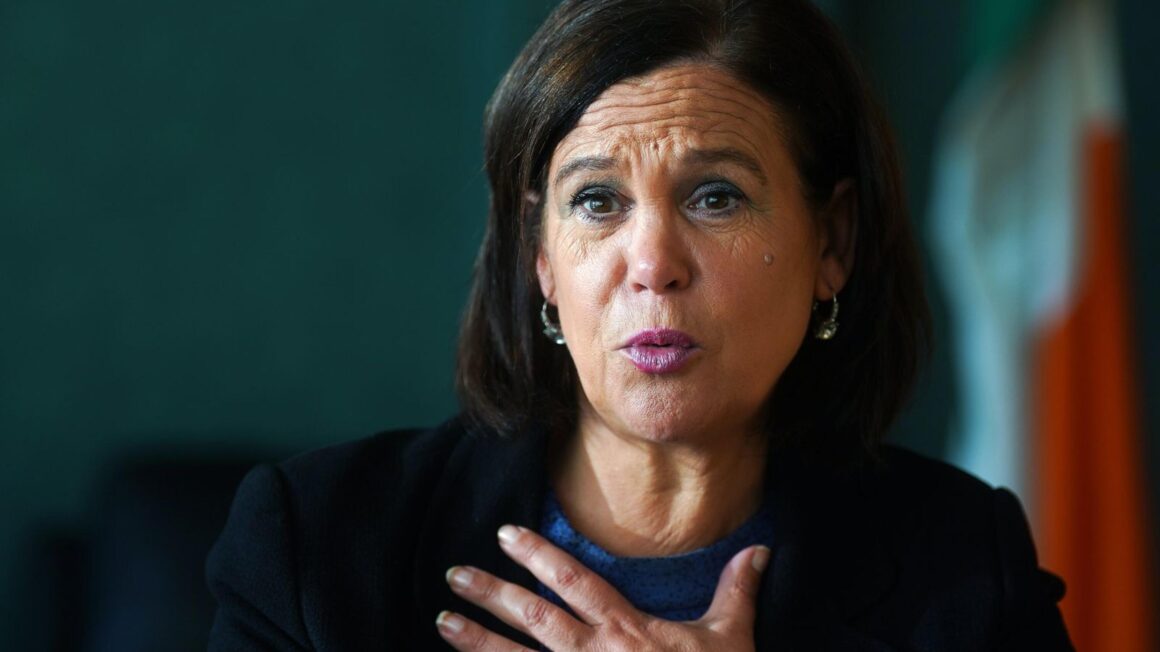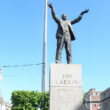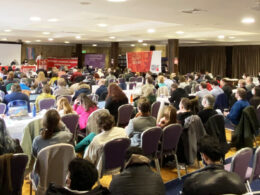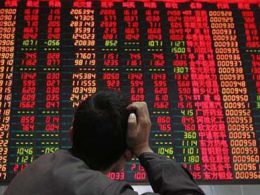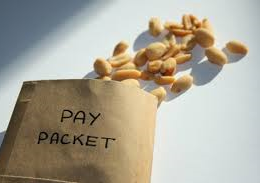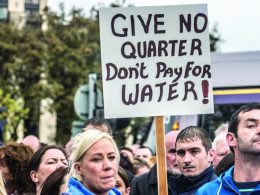By Eddie McCabe
The Politico website’s poll of polls shows that Sinn Féin’s support has been in consistent decline since late September 2023, falling from an average of 33% to 28%. One poll in the Business Post in January put Sinn Féin’s support as low as 25% – its lowest since the 2020 General Election.
Clearly this is a trend that reflects a shift in southern Irish politics, which in the years since the last general election has been marked by Sinn Féin’s rise at the expense of the Government parties. And while these parties may relish Sinn Féin’s troubles in the polls, there has been no boost in their own support. The main beneficiary has been in the ‘Independents and others’ category, as well as the smaller opposition parties. So it’s not confidence in the Government that’s hurting Sinn Féin, but diminishing confidence in Sinn Féin itself.
Blunders and betrayals
Even the superficial analyses offered by political commentators have linked Sinn Féin’s drop in the polls to the biggest political issues over the past five months – and Sinn Féin’s weak responses to them – namely immigration (and the far right activity around it) and the Gaza genocide. On both issues Sinn Féin has made what many have seen as blunders, and many others have seen as appalling betrayals of its supposed principles.
On immigration, Sinn Féin’s response to the pressure coming from the nefarious forces of the far right has been to cave to it, rather than rebuff their racist lies. As such, in the Dåil debate on immigration sparked by the racist ‘Rural Independents’, Sinn Féin’s TDs made no criticisms of the blatant racism contained in the Independents’ motion. Instead, they went out of their way to insist that they are opposed to “open borders” and wanted to speed up deportations. In a similar vein, in an interview in December, Mary Lou McDonald went out of her way to raise the prospect of deporting Ukrainian refugees.
On Gaza, Sinn Féin’s has consistently had to play catch-up with the reality of the horrors taking place and the mood in the Palestine solidarity movement, of which it claims to be a solid part. From its initial refusal to demand the expulsion of the Israeli ambassador; to its decision to join the St. Patrick’s Day celebrations at the White House; to the shocking viral footage of Palestinians (offering a critical view of Sinn Féin’s actions) being shouted down and escorted out of the ‘Solidarity Rally for Palestine’ in Belfast; more and more people are questioning where Sinn Féin’s loyalties really lie – with the oppressed Palestinians or with American capitalists and the capitalist system.
Taking the right-wing path
The truth is that these recent mistakes are not just errors in judgments, but are symptomatic of Sinn Féin’s long-term and accelerating shift to the right. Having taken up the First Minister position in the North, its next aim is to take up the position of Taoiseach in the South. Every other consideration (indeed every principle) will be subordinated to that aim. And like every pro-capitalist party with a radical veneer, Sinn Féin mistakenly believes that the path to government power is through moderating its (in this case already moderate) politics.
Pat Leahy in The Irish Times posed the problem for Sinn Féin this way: “Lurking underneath all these tactical difficulties for Sinn Féin is the more substantial strategic conundrum – how do you stand as the party of change, if you are simultaneously promising you won’t change lots of things, principally Ireland’s economic model?”
Of course, given the dissatisfaction with the Government, and given that Sinn Féin is the largest opposition party and therefore seen as the most likely way to an alternative Government – the primary factor in its rise in recent years – things could shift back to Sinn Féin the closer we approach an election. What seems increasingly unlikely, however, is any enthusiastic popular surge behind Sinn Féin.
This has important implications for those on the left. A real left and socialist alternative needs to be built, not as a way to offer Sinn Féin support from the left as it continues on its rightward path, but as an alternative to both the Government and Sinn Féin, and any prospective Governments they form – which will only maintain the capitalist status quo of crisis, inequality and oppression.





